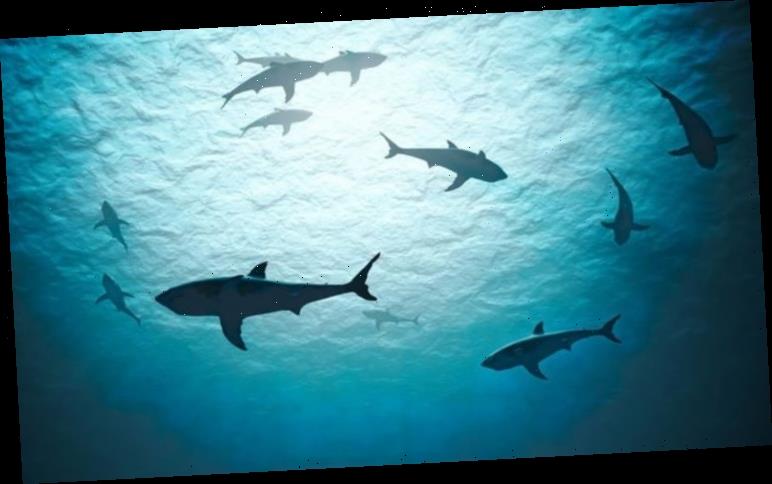Big fish including sharks may be playing a hitherto-hidden role in regulating the planet’s carbon dioxide (CO2) levels. Such aquatic animals are already known to be so-called carbon sinks.
A carbon sink is anything considered capable of absorbing more carbon than it releases as CO2.
When a fish is caught the carbon it contains is partly emitted into the atmosphere as CO2 a few days or weeks after
Gael Mariani
Forests, for example, are well known as net carbon sinks because they ingest more carbon than they emit.
But the seas are now understood to play an increasingly important role in regulating the amount of carbon remaining in the atmosphere, by absorbing incredible quantities of emissions around the world.
And an international research team has now revealed how leaving more fish in the sea could help put a pause in global warming’s seemingly inevitable rise.
When marine animals such as sharks die, they slowly sink to the seabed.
When this happens, the animal carcasses store away all of the carbon in the seabed in what is known as a blue carbon pump phenomenon.
However, this process is being unfortunately by eroded by industrial fishing at an alarming rate.
Gael Mariani, a PhD student at Montpellier University and the study’s lead author has revealed this process was overlooked – until now.
He said: “When a fish is caught the carbon it contains is partly emitted into the atmosphere as CO2 a few days or weeks after.”
The researcher discovered for the first time how ocean fisheries released 730 million metric tons of carbon dioxide since 1950 – at the very minimum.
In addition, approximately 20.4 metric tons of the greenhouse gas was discharged in 2014.
This amount equates to roughly 4.5 million cars’ annual emissions.
Co-author Professor David Mouillot, of Australia’s James Cook University, warned how carbon footprints are 25 percent higher than previous estimates made by the industry.
He said: “Fishing boats produce greenhouse gases by consuming fuel.
“And now we know extracting fish releases additional CO2 that would otherwise remain captive in the ocean.”
Large fish including sharks on average approximately constitute 10 to 15 percent carbon.
Coral reef expert Professor Mouillot added: “When these fish die, they sink rapidly.
“As a result, most of the carbon they contain is sequestered at the bottom of the sea for thousands or even millions of years.
“They are therefore carbon sinks – the size of which has never been estimated before.”
The oceans are well known to be in dire straights, following unprecedented threats from both climate change and overfishing.
And this new research offers yet more compelling reasons to protect these areas, which make up more than two-thirds of Earth’s surface area.
Source: Read Full Article




